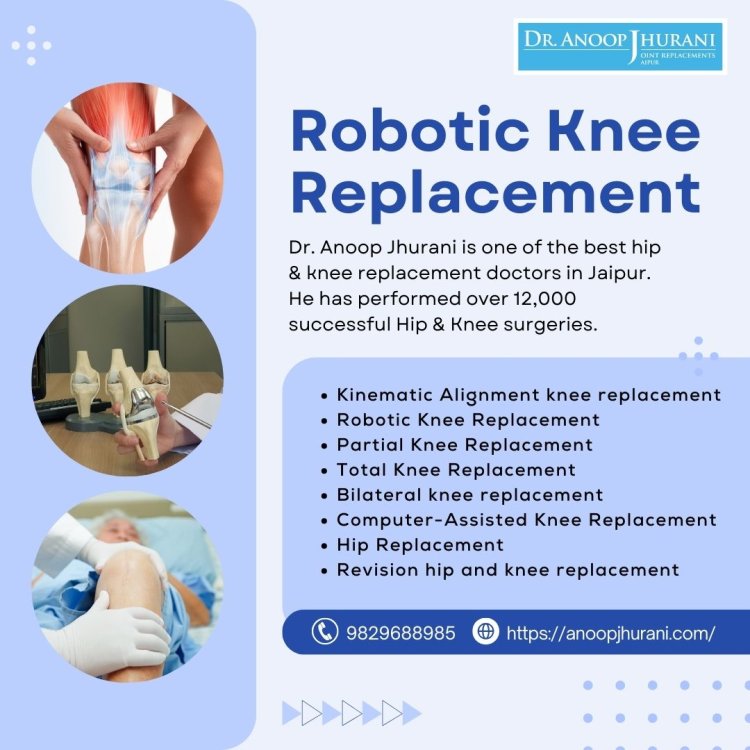Advancements in Knee Replacement Surgery
Dr. Anoop Jhurani is one of the best hip & knee replacement doctors in Jaipur. He has performed over 12,000 successful Hip & Knee surgeries.
Share this Post to earn Money ( Upto ₹100 per 1000 Views )

Understanding Robotic-Assisted Techniques and Indications for Surgery
Knee pain and mobility issues can significantly impact one's quality of life, affecting daily activities and overall well-being. Fortunately, advancements in medical technology have revolutionized knee replacement surgery, offering patients innovative solutions for addressing chronic knee conditions. The intricacies of robotic-assisted knee replacement surgery and discuss the indications for considering knee replacement as a treatment option.
Robotic Knee Replacement Surgery: Robotic knee replacement surgery represents a significant advancement in orthopedic care, providing enhanced precision and accuracy during the surgical procedure. Here's how it works:
1. Advanced Computer Software: Robotic knee replacement surgery begins with the use of sophisticated computer software that gathers precise information about the patient's knee anatomy.
2. Robotics-Assisted Arm: This information is then transmitted to a robotics-assisted arm, which the surgeon utilizes during the procedure. The boundaries of the robotics-assisted arm are determined using patient-specific data, ensuring optimal positioning and alignment of the joint components.
3. Precise Balancing and Positioning: With the aid of the robotic-assisted arm, the surgeon can precisely balance and position the joint components, leading to improved surgical outcomes and long-term functionality of the knee implant.
Indications for Knee Replacement Surgery: Knee replacement surgery may be recommended for individuals experiencing the following symptoms and conditions:
1. Chronic Knee Pain: Persistent knee pain, particularly while resting or engaging in daily activities, may indicate the need for knee replacement surgery. This pain can significantly impact one's quality of life and may not be alleviated with conservative treatment measures.
2. Impaired Mobility: Knee pain that restricts mobility and limits the ability to walk, run, or perform routine tasks may warrant consideration for knee replacement surgery. Difficulty in walking or standing for prolonged periods can indicate underlying joint damage that may require surgical intervention.
3. Swelling and Stiffness: Swelling, inflammation, and stiffness in the knee joint, especially following medication or rest, may be indicative of underlying joint degeneration or arthritis. These symptoms can progressively worsen over time and may necessitate surgical treatment to restore function and alleviate discomfort.
4. Structural Deformities: Structural deformities of the knee, such as bow-leggedness or knock-knees, can result from underlying joint issues or arthritis. These deformities may contribute to pain, instability, and difficulty in performing daily activities, prompting consideration for knee replacement surgery.
Conclusion:
Robotic-assisted knee replacement surgery offers patients a minimally invasive, highly precise approach to addressing chronic knee conditions and restoring mobility. By understanding the indications for knee replacement surgery and leveraging advanced surgical techniques, individuals can experience improved joint function, reduced pain, and enhanced quality of life. If you're experiencing persistent knee pain or mobility issues, consult with a qualified orthopedic surgeon to explore your treatment options and determine if knee replacement surgery is right for you.
















